- Home
- Rick Mofina
Be Mine Page 22
Be Mine Read online
Page 22
I’m so sorry, Gloria.
Lois emptied the purse on her table. It had gum, a knife, a personal key-ring alarm, pepper spray, a MUNI Fastpass, condoms, pens, tampons, minipad, her wallet. Her wallet had a few credit cards, her California driver’s license, bank card, eleven dollars cash, slips of paper. One looked like a grocery list, one torn from the classifieds, about an escort service, another torn from the yellow pages. Dating service. She found a small black book with a list of cell phone and pager numbers. Right. Dealers. Then a folded slip of paper with a number on the top and a message printed in neat blue-inked block letters, alien from Gloria’s handwriting style.
Lois stared at the message and thought for a long moment before she grabbed the coins, went to the public phone on the corner, and dialed the number.
“Office of Citizens’ Complaints,” the receptionist answered.
Lois hung up.
She stared at the words on the paper, reading them over and over.
This is it.
The message Tom Reed was looking for.
SIXTY-TWO
“Oh yeah, I remember this one.” Della Thompson studied the printout of an old story Simon Lepp had dug out of the archives.
DRUG COPS POCKETED DEALER’S CASH,
ATTORNEY ALLEGES
DELLA THOMPSON SAN FRANCISCO STAR
Officers with the narcotics detail held guns to the head of a man convicted of trafficking cocaine, then stole “hundreds of thousands” in cash from his home, his lawyer alleged yesterday.
“This pulls back a curtain on police corruption. It will shake this city like it’s never been shaken,” Smith Holland Smith, a flamboyant outspoken lawyer for some of the Bay Area’s most notorious citizens, charged in a hastily called news conference. “Time to wake up, San Francisco. Something’s rotten to the core in your city,” said Smith, refusing to name officers or provide any evidence of wrong-doing on the part of the San Francisco police.
Lieutenant Paul Varner, a department spokesman, likened Smith’s claim to a circus act. “His client is going away for a lot of years and Smith pops up with this knee-slapper,” Varner said. “All he’s missing is the big shoes and a honking red nose.”
Asked why Smith never raised his allegations at the trial of his client, Flavelle “Big Daddy” White, Smith said: “Stay tuned. I’ll be delivering it to you in an 18-wheeler.”
Thompson shook her head at the memory of the story as Lepp waited for her assessment.
“What do you think?” Lepp asked, proud of himself for tracking it. The story had been missed by the computerized data bank. “I went through microfilm. This took place back when Cliff Hooper was in Narcotics. It’s got to be tied to his murder. Has to be White’s people coming after him.”
After going through it, Thompson passed it back.
“Afraid not. Smith’s claim was all bogus. We went nuts trying to confirm this. Smith never delivered a thing. Typical. It withered. Tom went to the street on it. He got through to White in prison. The guy admitted he’d concocted the claim because he was so messed up on drugs.”
But Lepp was not ready to toss it even though Tom had told him the same thing. Especially now. This story fit. It pointed to a killer with the strongest motivation. Revenge. OCC must be aware of this. And Hooper’s partner, Ray Beamon, would have been the one man who would’ve known the truth. What was it Beamon called Hooper at the funeral, his “brother”?
Lepp was convinced this story fit. “Tom dismissed it too, but I’m going to chase this down. I think there’s something to it,” he said.
Across the newsroom, Tom Reed was working on Yarrow while worrying about Lois Hirt. He’d put out calls in a number of directions in the hope of locating her. On Yarrow, he expected a call back any moment from a reliable contact.
The big mystery swirling around the metro desk was centered on Irene Pepper. She was conspicuously absent.
Acker was running Metro. “Don’t ask me. I don’t know what’s going on,” was all he told reporters.
Tom spotted Della Thompson headed his way, bursting to share something. “Hey, you won’t believe this one.” She dropped her voice. “I think Irene Pepper’s been fired.”
“What happened?”
“I got this from Yolanda in Human Resources. She does termination letters,” Della said. “Irene secretly approached a big New York publisher about coauthoring a book with Molly. Claimed she had exclusivity to Molly’s cooperation.”
“I never knew that.”
“Neither did Molly. She had no idea what Irene did, let alone agreed to work with her.”
“That kind of misrepresentation is nearly criminal, I’d say.”
“You know it, baby. Also explains why she kept pushing for Molly’s first-person.”
“Well, well, well.”
“Violet got wind of it and nailed Irene to the wall.”
“And how did Violet learn about it?”
“Someone screening Molly’s calls caught one from a very chatty New York editor, who explained Irene Pepper’s proposal, actually faxed a copy bearing Pepper’s signature for Molly to review.”
“You’ve made my day.”
“Ding-dong, the witch is dead.”
“And how’s Molly doing?”
“Better. She wants to move back to her place and get back to work soon.”
“Yeah, well, she shouldn’t let her guard down until they nail the guy.”
After Thompson left, Tom got a fresh coffee and returned to his desk in time to grab his line on the third ring.
“Reed,” he said.
“It’s me.”
Tom knew the distinct raw voice of a cement mixer churning gravel.
“Marv, how are you?”
“Yeah, I got your message and I’m taking care of that little thing like you wanted.”
“Anything there?”
“Yes, but not over the phone.”
“Where then?”
“Tomorrow morning. The marina. Near Avila.”
“Cripes, Marv, it’s impossible to park down there. Can’t you just tell me?”
“I got paper coming for you. If you want it, you have to come and get it. And remember, our business goes two ways.”
“What time?”
“Elevenish. This stuff from Chicago on your subject is something you need to see.”
SIXTY-THREE
Tom caught the opening riffs of “Layla” coming from his radio and cranked the volume as he ripped through San Francisco’s Marina District. He was on his way to meet the man who could lead him closer to the truth behind the murders of two San Francisco homicide cops.
The name of his source was Marv. He never used a last name. He was something of a retired investigator who in a former life had worked for the federal government. He’d done things no one could ever speak of and no one would ever acknowledge. He was good at obtaining solid up-todate confidential information on anybody fast. They’d met years earlier. Marv had called him to clarify facts in one of his stories on intelligence agents. Since then, they’d formed a casual relationship, trading data when it was mutually beneficial.
Like today.
It took nearly half an hour to find a parking spot within walking distance to Marv’s favorite bench, which faced the bay and the Golden Gate. As usual, Tom waited and watched sailboats bob in the hazy distance.
“Morning,” a man in his late fifties said. White hair curled from a golf cap and he gazed at the water through dark aviator glasses. He was holding a folded newspaper.
“I ran that subject for you.”
“What’d you find?”
“His last official address was Chicago.”
Marv passed his newspaper to Tom, who opened it to a copy of an Illinois driver’s license with a photo.
“That’s it? This is all you’ve got for me? I could’ve gotten that.”
“I’ve got more. A lot more. I pulled a lot of strings. Big ones that reach to the heavens. First, you’re going to gua
rantee me help when I need it.”
Tom momentarily considered the unknown risks before setting them aside.
“You’ve got my word,” he said.
Marv looked at the Golden Gate in the distance.
“It’ll have to do,” he said. “Judging from what I’ve found out, Mr. Yarrow’s got problems.”
“What kind of problems?”
“Read for yourself. And this is all the help you’re getting on this one.” Marv walked off, leaving a white envelope on the bench.
Inside were three pages on Chicago Police Board letterhead, the result of a confidential board review of an appeal by Chicago Police Officer Frank G. Yarrow. He had unsuccessfully appealed the superintendent’s decision to fire him, a step arising from a woman’s allegations that Yarrow had assaulted her.
The pages were grainy photocopies of faxed photocopies. Summaries, stating that a woman, whose name had been blacked out, had filed three complaints over three years accusing Yarrow of physically abusing her. Twice when he was in uniform and on duty. What the hell happened? There were few details.
Tom read it over, going back on phrases like reasons for dismissal...misconduct...assault...stalking.
In addition to upholding the superintendent’s decision to fire Yarrow, the board had ordered him to undergo counseling or face possible criminal charges. No other details.
Damn.
So as a young deputy, Yarrow stalked a woman in Texas, then left the department. He emerged as a cop with the Chicago PD, where he was fired for assaulting a woman and ordered to undergo counseling. Yarrow then surfaced and looked up Molly, his high school sweetheart, around the time her detective boyfriend was murdered.
Tom shuddered at the ramifications. He had to get to Sydowski. He had to get to Molly. Christ, they had to grab Yarrow.
Now.
SIXTY-FOUR
The growing pile of messages from Captain Tiggle in Chicago remained unanswered on Sydowski’s desk. They seemed to increase with desperation.
Urgent, please call. I have info as per request.
Sydowski peered sadly over his bifocals. Tiggle’s career had suffered a self-inflicted injury. Sydowski no longer needed him, he’d gone directly to Captain Ronan in Chicago Homicide, who’d moved mountains for him.
Sydowski finished studying the Chicago Police Board’s file on Yarrow, which Ronan had e-mailed earlier in the day. Photos, reports, everything. Ronan had grasped the significance of Sydowski’s request. Not only did he furnish Sydowski with Yarrow’s file but he’d arranged to go one better.
A few moments ago, Ronan had advised Sydowski to expect a critical call on Yarrow from Chicago at any moment.
Sydowski sipped his tepid coffee as he waited, moving on to reread the inventories of Hooper’s and Beamon’s crime scenes. He still had the feeling they’d missed something. No matter how many times they’d reviewed or gone back, he was convinced they’d overlooked one tiny thing. But he couldn’t put his finger on it.
His phone rang.
“Sydowski.”
“It’s Ronan. Here’s the number. She’s waiting for you to call now.”
“Thanks, I owe you.”
Sydowski dialed the number, a 312 area code. It was answered on the third ring.
“Hello?” a woman said softly. “Hello, Joy?”
“Yes.”
“Hi. Walt Sydowski with the San Francisco Police Department. I’m told you might be expecting my call?”
“Yes.” The woman cleared her throat.
“You also want anonymity?”
“Yes. Can you give me that assurance, Inspector Sydowski?”
“Yes.”
“I’ll only give you a few minutes.”
“Why did you agree to talk to me?”
“Captain Ronan is someone I trust.”
“How do you know Frank Yarrow?”
“I’m his ex-wife.”
“Why did you file three complaints against him? What were the circumstances?”
“Frank became increasingly abusive to me when we learned, after two miscarriages, that I can’t have children.”
“How was he abusive? Can you elaborate?”
“We were thrilled when I first became pregnant. But I lost the baby after two months. About three days after I got home from the hospital, Frank began talking like it was somehow my fault. Said I didn’t pray enough.”
“Was that the extent of the abuse?”
“About a week later, he came home during a shift. He was upset and accused me of not reading enough Scripture. He said that was why I’d lost his child. We argued and he punched me”--in the head, the documents noted--“I let it go. Made excuses. We were both still grieving, hurting.”
“Was he okay after that?”
“It seemed. Time went by. I got pregnant a second time. I lost the baby after eleven weeks.” A long silence passed as the woman struggled with her emotions before resuming. “The doctors then told me that there was little chance I could ever carry a baby to term.”
“How did Frank take that?”
“For weeks he wouldn’t speak to me. Then he hurled a Bible at me. Then he began accusing me of ruining his life, not being able to give him a child. At his worst, he accused me of being in league with the devil. He got angry. One day he started choking me. I filed for separation.”
“Where did you go?”
“I moved in with my sister but he kept stalking me, demanding I come back, pleading that he was sorry, that he was hurting, that we should see about a medical miracle.”
“What did you do?”
“I told him it was over. He didn’t say anything. Actually, he was okay until our divorce came through.”
“How did he handle that?”
“Horribly. One night I was in the supermarket and he just showed up, in uniform, stalking me. Followed my car home. Showed up in the driveway. He said he knew how to deal with sinners. It was a threat. He scared me to death.”
“What happened?”
“Nothing. Then two weeks later he showed up one night at my house. Accused me of destroying him. He slapped me. A neighbor, a firefighter, witnessed it all, came over the fence and protected me. In the morning, I called my lawyer and got an emergency order of protection from a Cook County court. My lawyer helped me file complaints with Chicago PD against him. I’m glad Frank lost his job. He has no right being a police officer. The Chicago PD was very good. They took my case seriously.”
“Why didn’t you press charges?”
“I’d considered it but I didn’t want to deal with him anymore. His history is on record. I was relieved he moved away.”
“When’s the last you heard from your ex-husband?”
“He called me about a month ago in the middle of the night.”
“To threaten you?”
“No. It was strange. He said he’d forgiven me. He said it took a long time for him to realize that there was only one woman in the world for him.”
“Who was that?”
“An old girlfriend he knew growing up in Texas. He said that they were once in love, that she would give him a child. That they were meant to be together and he was happy because he was going to make it happen. It was strange.”
“Did he tell you who this woman was?”
“Molly somebody.”
Sydowski cleared his throat. “Molly Wilson?”
“I don’t know.”
“Ever hear of Molly Wilson?”
“No. Look, that’s all I have to say,” she said. “This is still very painful.”
“I understand and thank you. Oh, just one last thing. Do you have any idea where he’s living right now? Is it Kansas City?”
“San Francisco,” she said.
“San Francisco? I thought he was just visiting here.”
“No, he lives there. That’s what my lawyer told me when he updated the protection order. Seems he moved there just a few months ago for some job with a security firm. I mean, he’s got court viol
ations. He owes me alimony, he’s supposed to take counseling. I’m sure he’s hiding from creditors. I thought that’s why you were calling.”
Sydowski hung up and called the SFPD dispatcher to request two units go Code 2 to Della Thompson’s house in Glen Park and check on the welfare of Molly Wilson. Then he immediately tried calling Thompson’s number. While it rang, he pulled out his cell phone and tried Molly’s cell phone number.
He felt a trickle of sweat meander down his back.
Answer. For God’s sake, somebody answer.
SIXTY-FIVE
Della Thompson was waiting in line at the supermarket scanning the tabloid headlines and diet books when her cell phone rang.
“Hello.”
“It’s Tom. Is Molly with you?”
“No. I dropped her off at her apartment this morning. You sound panicked. What is it?”
“I’ve been calling there and her cell phone. I’ve got to reach her.”
“Miss--” The woman behind Thompson had a wrinkled prune of a face as she indicated it was Thompson’s turn to unload her items on the conveyor.
“She was going to go for a run,” Thompson said, “then drive back to my place with her own car. Tonight was going to be her last night with me before she moved back. We were going to have a nice dinner--” Thompson heard a horn honk, screeching tires, and cursing. “Tom! What’s going on!”
“I’m on my way to her place now. Tell her I think it’s Yarrow. Keep calling. And call Sydowski.”
“Miss--please, are you checking out now or not?” Thompson hung up and quickly unloaded her cart. But her mind was on Molly’s safety when her phone rang again. This time it was Sydowski asking about Molly.
“I just told Tom, she’s at her place in North Beach, running through Telegraph Hill.”

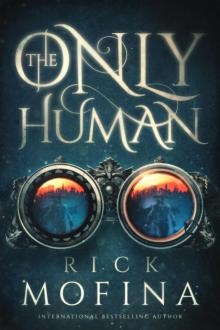 The Only Human
The Only Human Tom Reed Thriller Series
Tom Reed Thriller Series![[Tom Reed and Walt Sydowski 04.0] No Way Back Read online](http://i1.bookreadfree.com/05/tom_reed_and_walt_sydowski_04_0_no_way_back_preview.jpg) [Tom Reed and Walt Sydowski 04.0] No Way Back
[Tom Reed and Walt Sydowski 04.0] No Way Back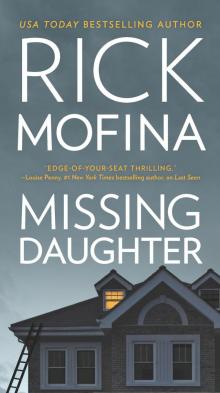 Missing Daughter
Missing Daughter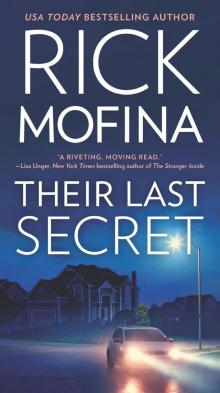 Their Last Secret
Their Last Secret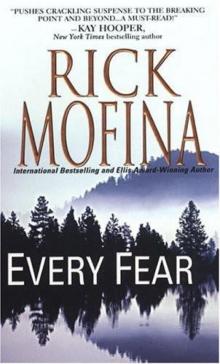 Jason Wade - 02 - Every Fear
Jason Wade - 02 - Every Fear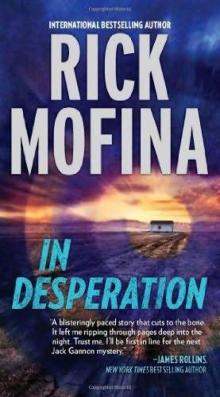 In Desperation
In Desperation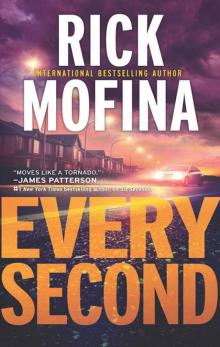 Every Second
Every Second Full Tilt
Full Tilt Search for Her
Search for Her The Last Pursuit
The Last Pursuit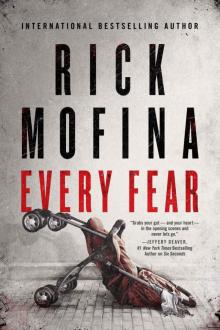 Every Fear
Every Fear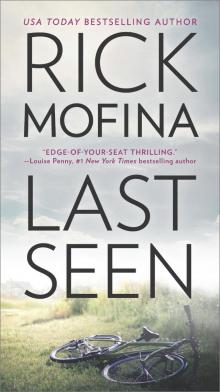 Last Seen
Last Seen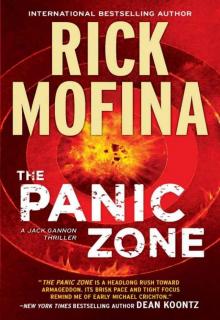 The Panic Zone
The Panic Zone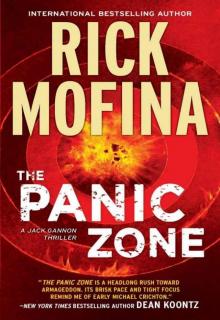 The Panic Zone jg-2
The Panic Zone jg-2 Free Fall
Free Fall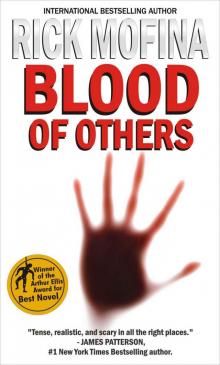 Blood of Others
Blood of Others![[Jason Wade 02.0] Every Fear Read online](http://i1.bookreadfree.com/i1/03/31/jason_wade_02_0_every_fear_preview.jpg) [Jason Wade 02.0] Every Fear
[Jason Wade 02.0] Every Fear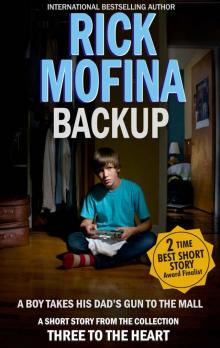 Backup
Backup Perfect Grave
Perfect Grave Into the Dark
Into the Dark Whirlwind
Whirlwind Perfect Grave jw-3
Perfect Grave jw-3 If Angels Fall (tom reed and walt sydowski)
If Angels Fall (tom reed and walt sydowski)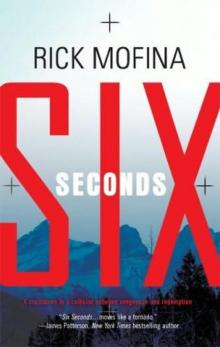 Six Seconds
Six Seconds If Angels Fall
If Angels Fall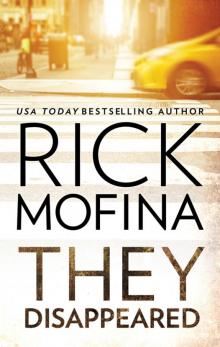 They Disappeared
They Disappeared Vengeance Road
Vengeance Road Before Sunrise
Before Sunrise A Lifetime Burning in a Moment
A Lifetime Burning in a Moment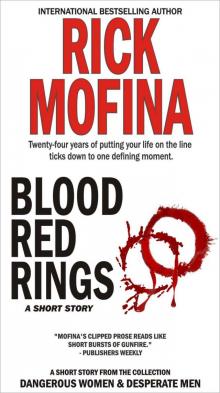 Blood Red Rings (Dangerous Women & Desperate Men)
Blood Red Rings (Dangerous Women & Desperate Men) As Long As We Both Shall Live (Dangerous Women & Desperate Men)
As Long As We Both Shall Live (Dangerous Women & Desperate Men)![[Tom Reed and Walt Sydowski 01.0] If Angels Fall Read online](http://i1.bookreadfree.com/i2/04/12/tom_reed_and_walt_sydowski_01_0_if_angels_fall_preview.jpg) [Tom Reed and Walt Sydowski 01.0] If Angels Fall
[Tom Reed and Walt Sydowski 01.0] If Angels Fall Cold Fear
Cold Fear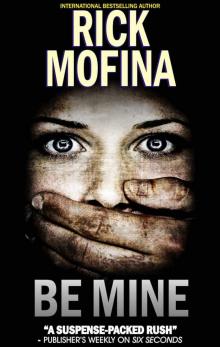 Be Mine
Be Mine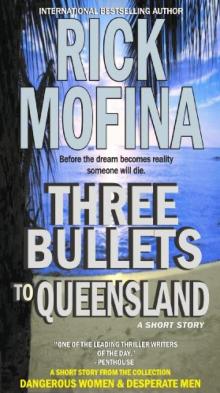 Three Bullets To Queensland
Three Bullets To Queensland